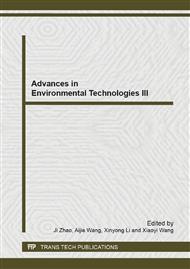p.1210
p.1216
p.1220
p.1224
p.1229
p.1235
p.1241
p.1245
p.1250
Imbalanced Environmental Interests among Subjects with Distinctive Rights
Abstract:
The environmental interests among subjects with different rights pose an imbalance, involving specifically of the imbalance in environmental rights sharing as well as responsibilities shouldering among different subjects. Using the method of game theory analysis, we concluded that the optimal alternatives turned out to be the public authorities’ positive regulation on the companies’ pollution, or the companies’ voluntary conduct of pollutants removing, thus achieving the overall improvement of environmental interests of the government, companies and residents. However, the co-existence of both market and government malfunction derived from the intrinsic feature of quasi-public goods, appears to be a formidable obstacle to the subjects’ environmental interests equilibrium. Consequently, the ultimate aim to achieving equilibrium in environmental interests is apparently in line with coordination among the abovementioned subjects, mutually requiring companies’ voluntary assumption of their responsibilities, government’s endeavor from the regulation level and residents’ awareness of their environmental rights.
Info:
Periodical:
Pages:
1229-1234
Citation:
Online since:
June 2014
Authors:
Price:
Сopyright:
© 2014 Trans Tech Publications Ltd. All Rights Reserved
Share:
Citation:


